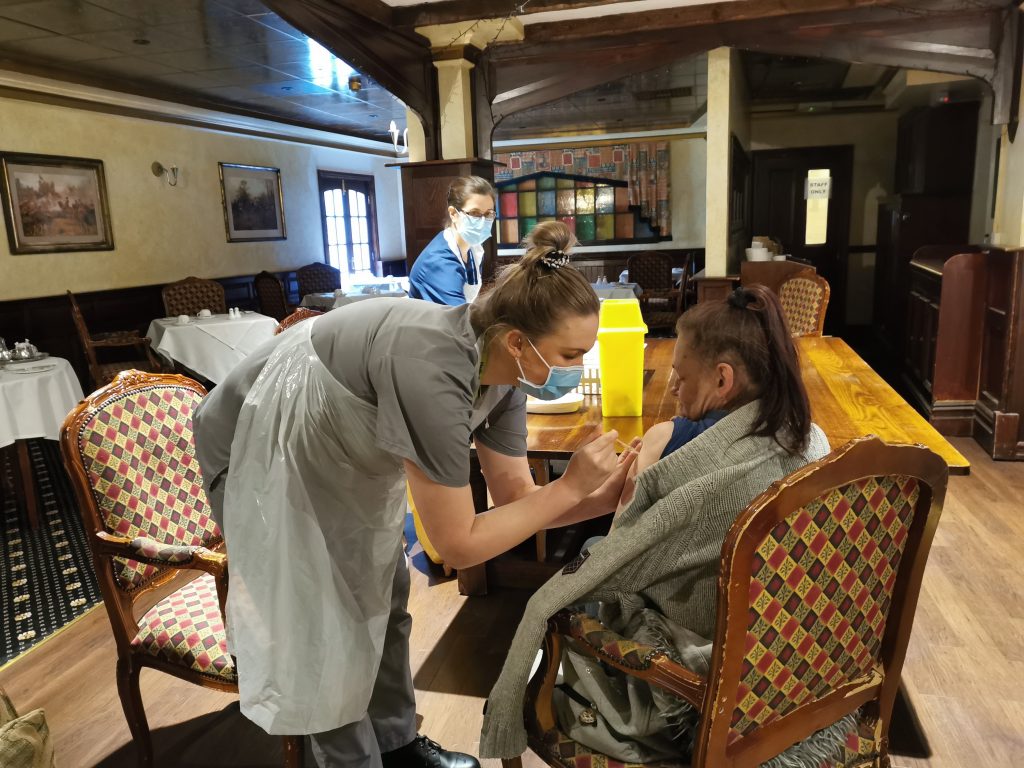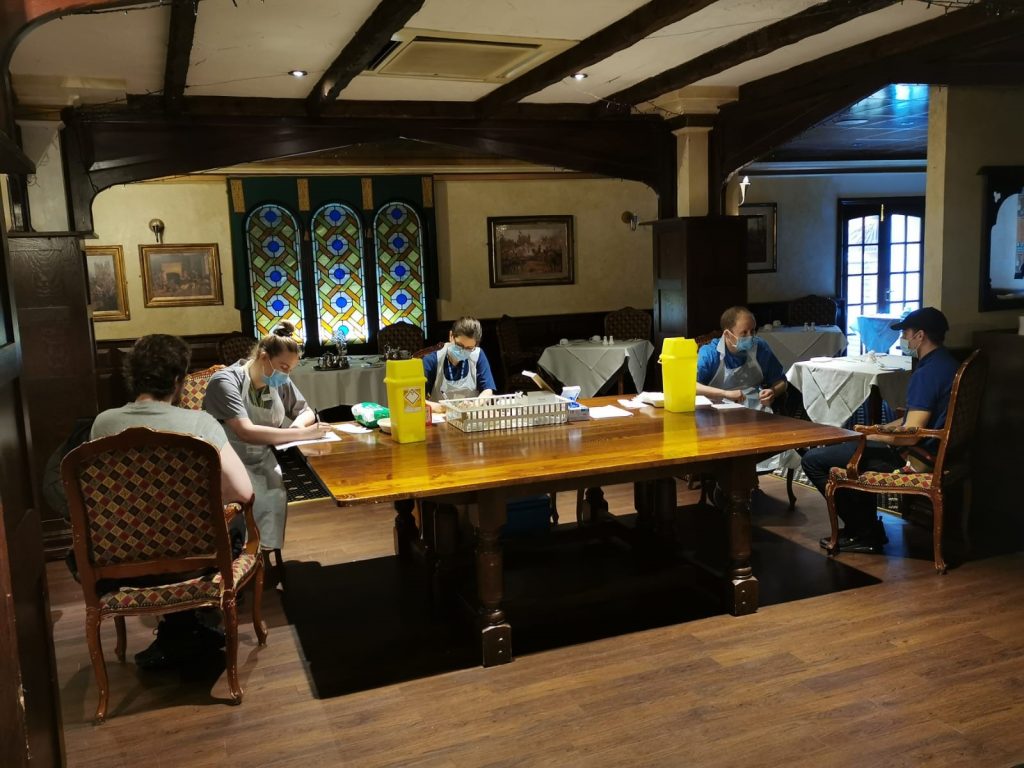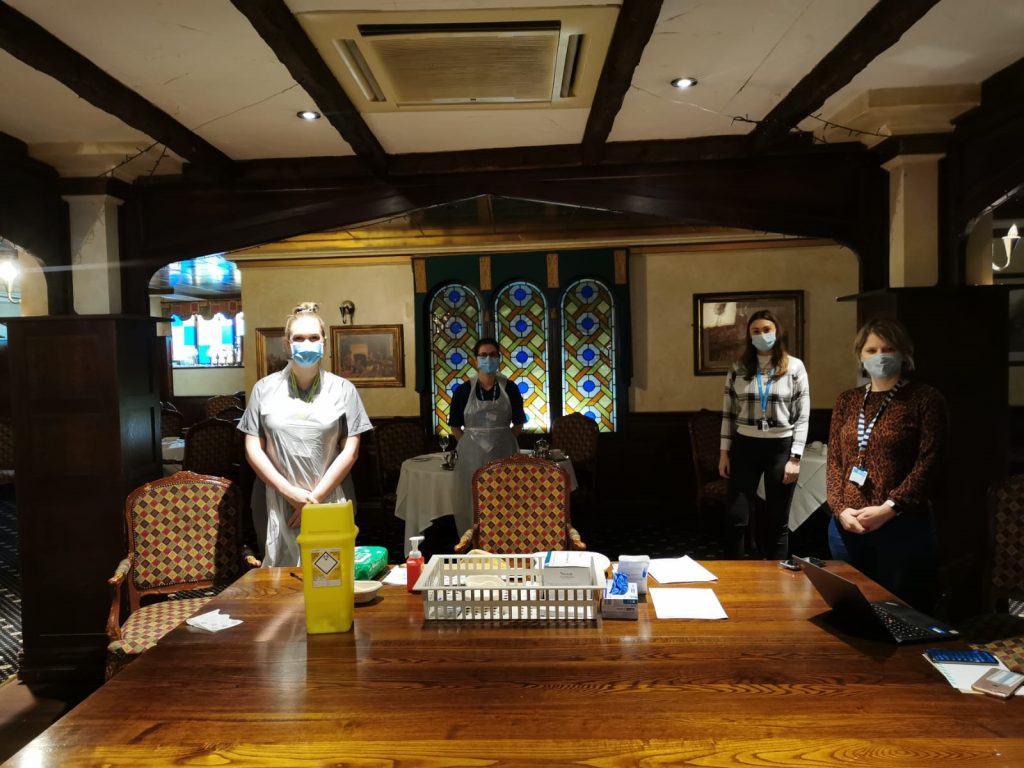Coronavirus: Shropshire Council launches fast track access to vaccinations for homeless
Shropshire Council has launched a programme to vaccinate rough sleepers and the homeless in the county as part of its efforts to prevent the spread of coronavirus.
The council was one of several councils in England who decided to prioritise homeless people for vaccination against COVID-19, prior to yesterday’s announcement which will now include those who are homeless under the Government’s accepted JCVI recommendations.

Working with local GP surgery Riverside Medical Practice in Shrewsbury, The Shrewsbury Ark and Shropshire Recovery Partnership, the council have been offering the vaccine to rough sleepers and those who are homeless over the past three weeks, and will continue to offer the vaccine to those who have not received it.
To date, over 50 of those who are homeless and/or staying in temporary accommodation have received their first dose of a vaccine.
Today (Friday 12 March 2021) another 27 people had their vaccinations at the Prince Rupert Hotel in Shrewsbury, which has been set up as a temporary vaccination location, taking the total number of individuals vaccinated to 77. Shropshire Council’s rough sleeper outreach workers have been working closely with Riverside Medical Practice to support those currently living at the Prince Rupert Hotel and in other B&Bs across the county, to get their jabs.

Practitioners from Riverside Medical Practice in Shrewsbury providing vaccinations at Prince Rupert Hotel
Paul, 52, who is currently staying at the Prince Rupert, said about his experience:-
“It’s a relief. I got a little bit stressed watching the news and knowing a couple of the age groups that they spoke about. I didn’t actually hear about the 52, so I got a little bit worried, so it’s a relief.
“It was straightforward, I didn’t even feel it to be honest with you. Mind you, saying that, I’ve got a bit of a numbness in my arm right now, but that’s about it.
“I’m looking forward to possibly getting my own accommodation and, that way, probably stepping forward instead of backwards in my life.”
You can view Paul’s story below:
People who rough sleep or are at risk of homelessness can often have lower immune systems, making it more likely they will be seriously ill if they catch the virus. Alongside this they also come into contact with a large number of people, which means if they have coronavirus there is a risk they could pass it on. That’s why it is so important they are offered a vaccine.
Laura Fisher, Shropshire Council’s service manager for housing and occupational therapy, said:-
“I am very proud that we had already began our vaccination programme for rough sleepers and those who are homeless, prior to the Government’s announcement yesterday.
“Those who sleep rough and are at risk of homelessness are some of the most vulnerable people in society and need our help and support. Being vaccinated will also provide additional protection to those who work closely with them and the wider population, as well as keeping them safe and at less risk if they do contract the virus.
“I would also like to thank our officers; and in particular, the staff from Riverside Medical Practice who have been absolutely fantastic in the way they have organised and worked with the individuals, to ensure they receive their vaccinations quickly and safely.”

Council officers and Riverside Medical Practice. Shrewsbury staff at Prince Rupert Hotel
Hayley Ryder, Shropshire Council’s rough sleeper outreach worker, talks about the vaccination scheme for rough sleepers and those who are homeless.
With the vaccination programme continuing at pace Rachel Robinson, Shropshire Council’s director of public health, has called up on everyone living and or working in the county to continue to adhere to coronavirus restrictions and guidelines, and to continue routine testing even if they have had a vaccination, in order to keep themselves and others safe from the virus.
The council will also be rolling out fast track access to Lateral Flow Tests and PCR testing to homeless individuals.
Being vaccinated reduces the chances of people suffering from severe illness if they get COVID-19. However, some people may still get COVID-19 despite having a vaccine, but the severity of any infection should be much less.
Further information
The JCVI released a statement which recognises that many people experiencing homelessness or rough sleeping are likely to have underlying health conditions, which would place them in priority group 6, and these are likely to be under-diagnosed or incompletely recorded in GP records.
For these reasons, in line with the approach that many areas have already adopted, the JCVI advises that local teams should consider a universal offer of a vaccine against COVID-19 to people experiencing homelessness and rough sleeping, alongside the delivery of the vaccination programme to priority group 6, where appropriate.
Step Up and help us stop the spread of coronavirus:
- Stay At Home
- Work from home, if you can
- Wash your hands regularly with soap and water for at least 20 seconds
- Do not leave home if you or anyone in your household has symptoms
- Wear a face covering in indoor settings (food shops, workplaces) where social distancing may be more difficult, and where you may come close to people who are not part of your household or bubble.
- Anyone who has any symptoms should book a test and not leave home for at least 10 days. Those living in households should self-isolate for 10 days if they or any members of the household receive a positive test.
For local advice and support during the pandemic (especially if you are self-isolating), call Shropshire Council’s COVID-19 Helpline on 0345 678 9028 or visit our website at www.shropshire.gov.uk/coronavirus.

